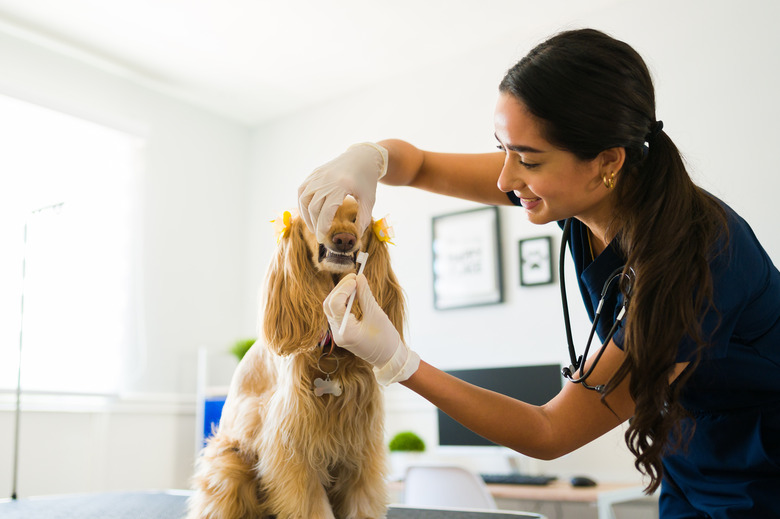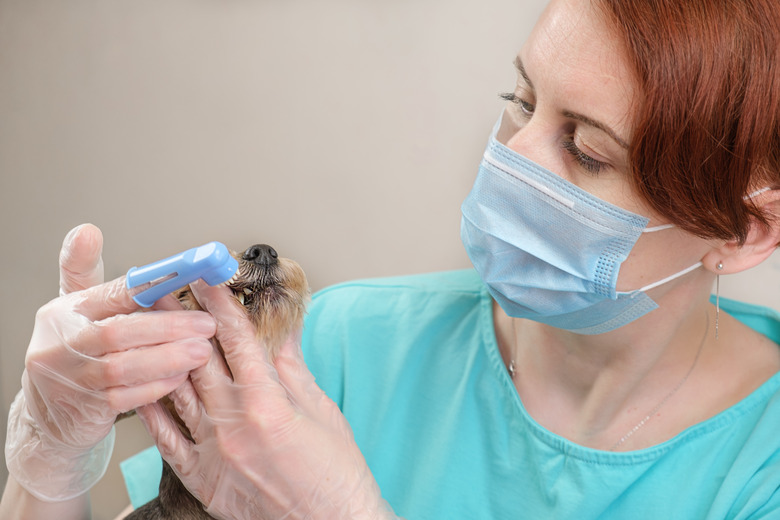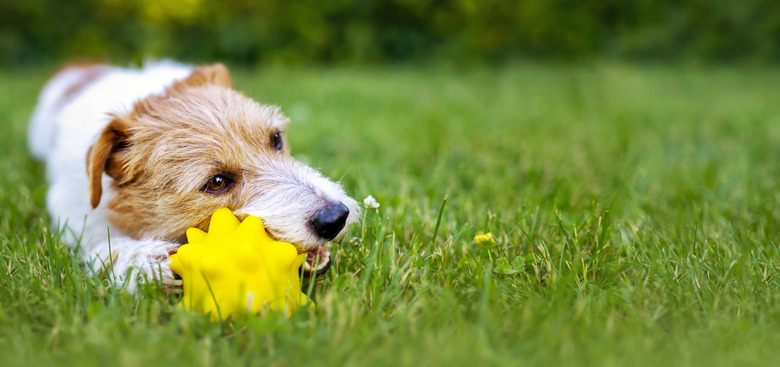How To Prepare My Dog For Teeth Cleaning
Although many people overlook their dog's oral hygiene, dental care is just as important for animals as it is for humans. Pets can develop the same types of dental diseases as people, including cavities and gingivitis, They also often experience the same complications. In fact, according to the American Animal Hospital Association (AAHA), most dogs and cats have some degree of periodontal disease by age three. Besides oral pain and fouler-than-usual breath, bacteria from dental infections can infiltrate your dog's bloodstream and travel to their heart, liver and kidneys, which may cause serious issues.
Brushing your dog's teeth daily with veterinarian-approved toothpaste and feeding them hard food can help scrub away bacteria and fortify teeth and gums. But these measures cannot remove all plaque and tartar. For this reason, your dog may need professional dental cleanings.
The frequency with which your pet needs cleanings will depend on factors, including their breed and size. Some, including toy breeds, require annual appointments, while other dogs only need them every few years. How long does a dog dental cleaning take? It's usually finished within an hour to 90 minutes, depending on the dog's size.
However, it may take another 15 to 20 minutes for the anesthesia to wear off. Your veterinarian will administer anesthesia to keep your pet still and ensure a pain-free dog teeth cleaning procedure. Because teeth cleanings involve anesthesia, you and the doctor will need to take a few precautions to ensure your pet is sufficiently healthy and prepared.
Visit your veterinarian for a health check-up
Visit your veterinarian for a health
check-up
While it is generally safe, anesthesia can pose some health risks. Your veterinarian will need to conduct a thorough physical exam to ensure your pet is healthy enough to go under.
During the exam, the veterinarian will listen to your pet's heart to check for abnormalities that could indicate an underlying condition. If they detect any irregularities, they may take chest radiographs or recommend a cardiology consultation to investigate further before proceeding with the dog teeth cleaning procedure. The doctor will also check your pet's mucous membranes — the gums and the inside of their cheeks. Pale mucous membranes may indicate anemia, while purple or blue membranes could signal a lack of oxygen in the blood.
Next, your veterinarian will run blood tests to assess kidney and liver function and red blood cell count. These tests can reveal issues such as kidney disease, liver disease, Addison's disease, acid-base imbalances, inflammation and low platelets, which could make it unsafe for your dog to undergo anesthesia. Even if your pup is perfectly healthy, pre-anesthetic testing establishes baseline results, which your veterinarian can refer to in future tests.
Some dogs are at higher risk of complications
Some dogs are at higher risk of
complications
Having a physical before a dog teeth cleaning procedure is particularly crucial for puppies, seniors and certain breeds and sizes, which have an increased risk of complications. For example, according to the AAHA, bulldogs, pugs and Boston terriers have higher respiratory complications. Meanwhile, toy breeds are at higher risk because they are more prone to hypothermia, can be more easily overdosed, and may be more challenging to intubate and monitor.
Your veterinarian will weigh the risks versus benefits based on your pet's specific situation. If they determine the advantages of a dog dental cleaning procedure outweigh the risks, they can adjust anesthesia protocols to improve your pet's safety.
At-home preparations for dog teeth cleaning
At-home preparations for dog teeth cleaning
Once your pet has the all-clear from their veterinarian, you may need to take one or more additional steps in the days leading up to the dog teeth cleaning procedure. For one, your pet must fast for at least 12 hours before their appointment. If you're wondering, "can my dog drink water before a teeth cleaning?" the answer is no. They will need to abstain entirely from food and water to clear their system before the procedure. Otherwise, they may vomit while sedated, which could cause serious problems.
Your veterinarian might prescribe antibiotics as well if your dog has a severe dental infection or gingivitis. In rare instances, they may ask you to administer them for several days before the procedure to begin clearing the infection. More commonly, a veterinarian may recommend your pup take antibiotics for about a week after their procedure to eradicate the infection.


